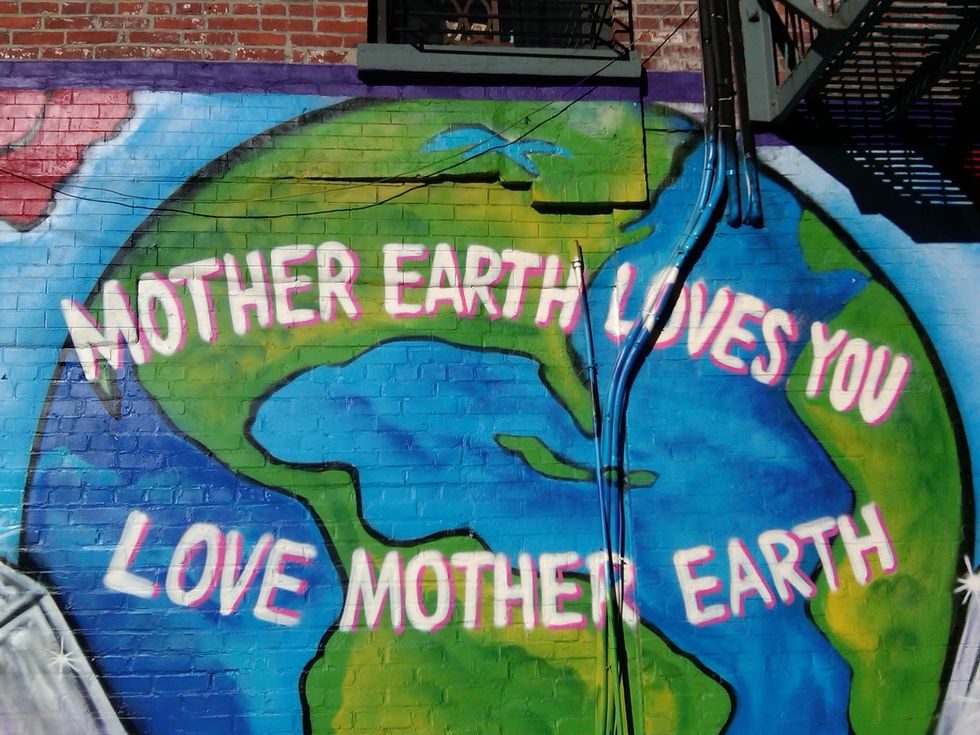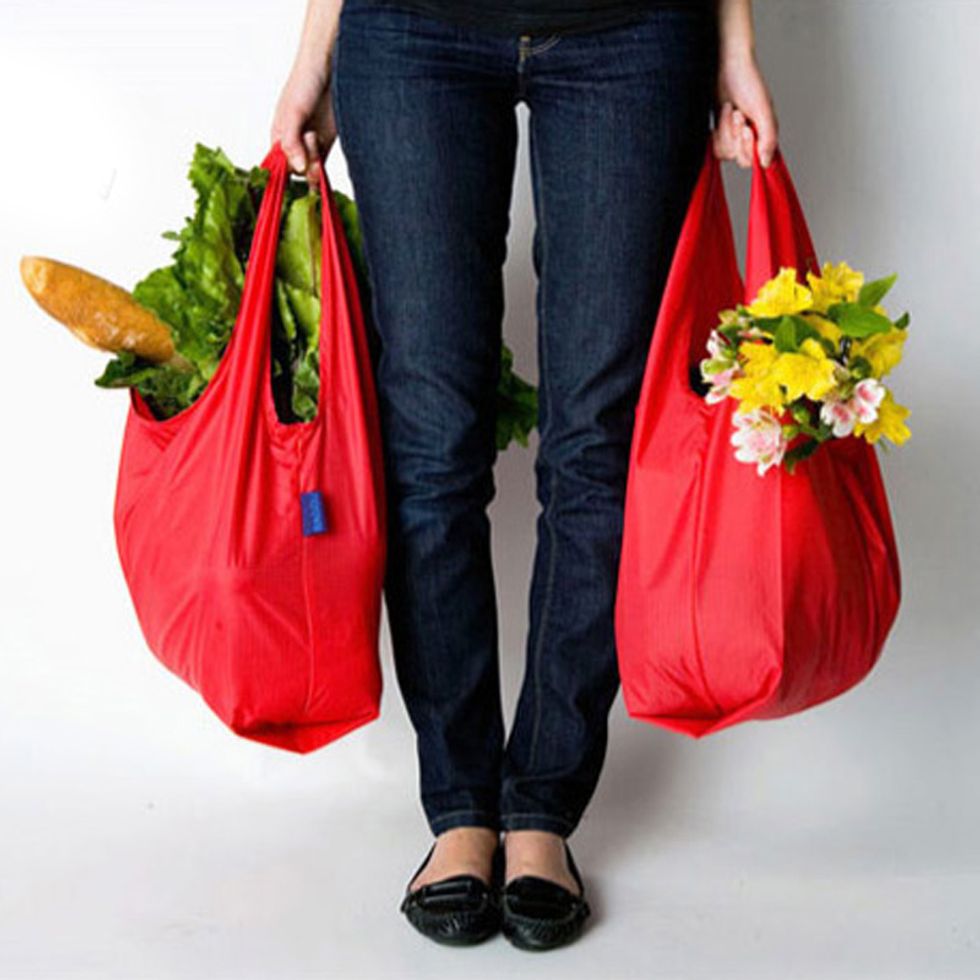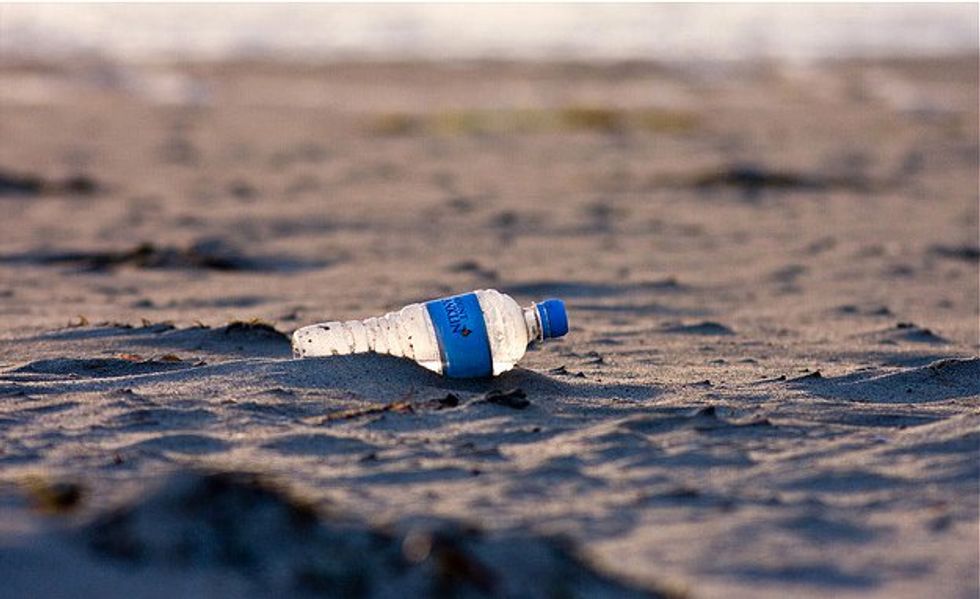With Earth Day having come and gone, and many of us having planted trees or ridden bicycles instead of cars for a day, we are now complacent. We feel that we did our part, and for the next 364 days before the next Earth Day, we can happily go back to living out our normal lives. We hear all the time about saving the planet, but what we need to realize is that the planet will still be here without us, and what really needs saving is life.
If we keep guzzling up the planet's resources for our overconsumption, we will drive the human race to extinction. This future is not inevitable though, and there are so many simple things we can do to contribute positively instead of negatively to the planet. While leaving a carbon footprint and creating pollution is unavoidable in today's world, we can lessen this footprint in more ways than we think.
1. Go meatless on Mondays.
One of the simplest ways we can help reduce greenhouse gas emissions is by eating less meat. While nobody is forcing you to become a vegetarian, choosing just one day a week to not eat meat can save about 1,850 gallons of water and up to 39 kg of greenhouse gas emissions each day. In addition to these benefits, eating less meat can help lower our risks for heart disease, diabetes, and obesity.
2. Use public transportation more often.
I get it. Cars are fast, private, and give us a sense of freedom, which is why many of us hesitate to use public transportation. Using public transportation though can greatly reduce the amount of pollution and harmful greenhouse gasses we emit every day.
By choosing public transportation for 20-mile round-trip commutes, the average person can save around 4,800 pounds of greenhouse gas emissions every year. The increased use of public transportation also helps decongest roads and bring in money to expand transportation systems in the future.
3. Use reusable bags when shopping.
So many of us have stacks of plastic bags in our cupboards that end up going to waste. Whether spending our money at Trader Joe's or Forever 21, we always need bags, and reusable bags are the way to go.
Plastic bags contribute to thousands of sea animal deaths from consumption of littered bags, increased greenhouse gas emissions from the energy needed for its production as well as its toxic components, and increased air pollution from the estimated 8 billion pounds in our waste stream each year. By ditching the plastic for inexpensive reusable bags, we can declutter our plastic bag collections and help save the environment at the same time.
4. Use reusable water bottles.
Plastic water bottles are everywhere. With water companies charging money for a resource we can easily acquire at home, the benefits of reusable water bottles are endless. Traditional plastic water bottles take around 1,000 years to fully decompose, and they are overflowing our landfills.
For every 1-liter water bottle, we use 3 liters of water, and to meet the current demand for plastic water bottles, we use over 17 billion barrels of oil each year. In order to help reduce our contribution to these issues, we need to decrease the demand for traditional plastic water bottles by buying safe reusable bottles instead.
5. Eat your leftovers.
Each year, about 1/3 of all the world's food is either lost or wasted, and this has many negative impacts on the environment. With so much food being wasted, so much environmental degradation follows. There is an overexploitation of land used for agriculture because by using too much land, biodiversity decreases, harmful greenhouse gas emissions increase, and landfills overfill.
This food waste affects our wallets as well as our world because we spend money on food that ends up getting thrown away. By being more conscious of how much food we make, when our food expires and making sure we eat our leftovers, we can reduce food waste. This consequently lowers the amount of money we spend on food, the amount of food we produce, and the amount of land we exploit.
By incorporating these simple actions into our everyday lives, we can make the future a little brighter and contribute to saving the only place we can call home: Earth.






















